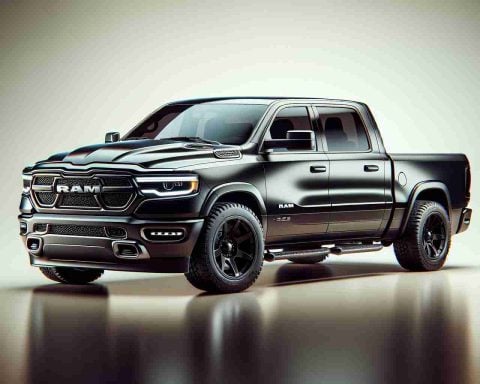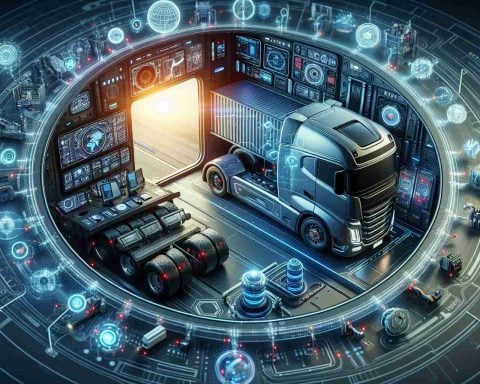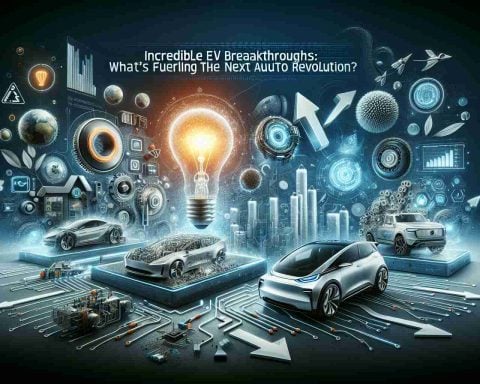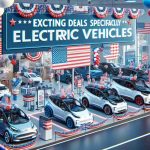Automakers are navigating a transformative era, as they shift gears from traditional engines to electrified marvels. The real game-changer, however, lies in the rapidly evolving battery technologies that promise to catapult the electric vehicle (EV) industry into a new dimension. To thrive in this landscape, manufacturers must overhaul their operations from design to production, incorporating cutting-edge features to captivate consumers.
Ultra-Fast Charging: With emerging ultra-fast charging (UFC) systems, recharging an EV could soon rival the speed of a gasoline fill-up. Current charging times range from 30 minutes to several hours, but new technologies aim to slash this to under 10 minutes. The implications are massive, necessitating advancements in battery design and thermal management, which could make swift recharging a compelling selling point.
Battery Swapping: This technology shortens downtime significantly by allowing depleted batteries to be exchanged for fully charged ones in minutes. Popularized in markets like China, battery swapping presents automakers with opportunities to enhance fleet efficiency and offer cost-effective EV options by shifting towards a service-based model.
Wireless Charging: As an emerging convenience, wireless charging eliminates the hassle of cable connections, allowing EVs to power up through magnetic induction. This seamless option could redefine urban mobility, provided manufacturers collaborate effectively with infrastructure stakeholders.
Bidirectional Charging: Vehicle-to-Grid (V2G) technology transforms EVs into dual-purpose machines, capable of both receiving and supplying energy. This innovation positions vehicles as pivotal energy assets, promising grid stability and consumer savings, aligned with environmental sustainability efforts.
Electrified Roads: The idea of roads that charge vehicles as they drive—via electrified tracks or wireless induction—presents a visionary future. Such developments could lead to lighter, more efficient EVs, shifting focus from large batteries to smarter energy utilization, fostering a collaborative effort between automakers and governments.
Advancements in battery technology are rapidly redefining electric transportation, pushing automakers to adopt flexible, forward-thinking strategies leveraging digital and virtual solutions. The future promises a more consumer-friendly and sustainable EV ecosystem.
Revolutionary Innovations in EV Infrastructure: How Will They Impact Our Future?
The electric vehicle (EV) revolution is charging full speed ahead, and while advancements in battery technology have gained much of the spotlight, significant developments in related infrastructure are set to further transform how we perceive and use EVs in everyday life. But what does this mean for individuals, communities, and entire countries? Let’s delve into some lesser-known yet revolutionary infrastructure innovations shaping the future of EVs.
Smart Charging Hubs: Beyond the convenience of charging, smart hubs integrate renewable energy sources like solar and wind, reducing reliance on traditional power grids. These hubs can predict peak electricity demands, optimizing charging times and minimizing costs for users. By connecting with smart city grids, they can drastically reduce urban carbon footprints and help cities meet sustainability goals.
Rural EV Adoption: One might question, will rural areas benefit from the EV boom? The answer is a resounding yes. With increasing investments in charging infrastructure in remote areas, rural communities are gradually gaining access to EV technology, enhancing connectivity and reducing transportation costs. These advancements enable broader EV adoption beyond urban centers, democratizing access to clean energy transport.
Public Transport Electrification: Electrifying public transportation systems, including buses and trains, has wide-ranging implications. They offer a practical solution for reducing vehicular emissions on a large scale. Cities like London and New York are leading the way by incorporating electric buses, which not only reduce pollution but also operate more quietly and efficiently.
Innovative Business Models: How are business strategies evolving with these changes? Companies like Tesla and NIO are exploring new ownership models, where consumers subscribe to their EV for a monthly fee rather than outright purchase. This could lower entry barriers for consumers, promoting a more sustainable transport model.
EV Recycling Programs: As EV adoption grows, managing end-of-life for vehicle batteries becomes crucial. Advanced recycling programs are in development to reclaim valuable materials like lithium and cobalt, ensuring that they don’t end up in landfills. This could lead to a circular economy model, fostering more sustainable material use and reducing mining impacts.
Global Supply Chain Shifts: Questions around supply chain stability have arisen; will countries need new partnerships? With the high demand for battery components, nations are reevaluating resource dependencies and geopolitical strategies. Collaborations between countries are essential for ensuring the stability of supply chains and fostering technological advancements.
Each of these technological and infrastructural advancements presents unique challenges and opportunities. How countries adapt to these changes will determine the impact on their economies and the global environment. Encouraging innovative policies and international cooperation will help nations navigate this complex yet promising landscape.
For more information on electric vehicles and their global impact, visit IEEE and Energy.gov.










